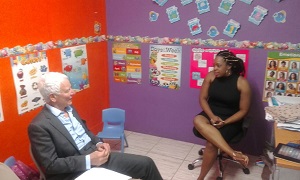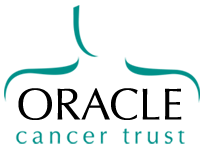
Liveryman Mark Hoble helped the founders of Liberty Choir and the trustees to think through the strategic objectives of the Choir; how and where it wanted to expand; the governance structure; a people plan; and financing/fund raising. Working on the plan was a challenging process for the Choir. One of the main challenges has been to improve governance in the Choir. As various trustees, many very high profile, were recruited it became apparent that governance needed to improve.
Liberty Choir is very proud of its record in reducing re-offending rates. Although it is early days there has been no re-offending by those who have joined one of the partner community choirs on release. It is uplifting to see how the choir members, who are often middle aged women, helping ex-offenders, who are often young black men, with their day-to-day challenges in securing accommodation and work. Liberty Choir fills a gap where other agencies often fall short due to under resourcing.
The Choir is about to go into its third prison - which is a women's prison - and there are plans to expand further. The results are very powerful and have a beneficial effect not only for the ex-offenders but also for the communities in which they live.

Sue Riddlestone, CEO and co-founder contacted WCoMC for a mentor to help her do a better job of leading Bioregional and so help them to reach their potential. Nanette Young, a Master Mentor and Liveryman with WCoMC is currently mentoring Sue and helping her with a number of challenges, which include:
- Six years of difficult trading condition, which have hopefully now stabilised.
- Implementing their current strategy without sufficient resources.
- The usual loneliness of the chief executive role and the need to talk things over with someone experienced, engaged and independent.
- The challenge of running an organisation which wants to make an impact as well as a financial surplus.
As a result of the WCoMC mentoring engagement, Sue also identified a need for staff sales training - with the result that WCoMC Freeman Douglas Mancini has provided sales expertise and guidance to Bioregional.
Sue’ s view on the mentoring and consulting support provided by WCoMC is as follows:
"Nanette has helped me to justify taking a bit more time to stop and focus on what is most strategically important for the organisation, and for me. Nanette is a great listener, but always chimes in with useful thoughts or questions during our regular catch-ups and by e-mail. I am sure that Nanette’s support for me has played an important role in us turning a corner over the past year as strategic projects have started to fly, and our income streams have improved. Douglas’s coaching, drawing on his sales expertise, was also invaluable in helping the team to shape the sales proposition for our new building energy performance service. The support of Nanette, Douglas and the Worshipful Company of Management Consultants has made a big difference to us at Bioregional over the past year".
- - - -
.JPG)
These reviews bring us into contact with a wide range of organisations and a remarkable range of new businesses set up by young entrepreneurs: tyre recycling in Bhutan, fresh juice supply in Barbados, making bricks from anthills in Uganda, building a virtual reality steel band museum in Trinidad.


Picture 1: Young entrepreneurs selling flowers in Dubai.
Picture 2: Bob Harris with the founder of a nursery in Trinidad.
Picture 3: PM John Corneille with an entrepreneur in his pharmacy in Mombasa.
- - - -
 The Oracle Cancer Trust (OCT) was registered by the Charity Commission on 20 May 2011 to continue the activities previously carried out by the unincorporated charity, The Head and Neck Cancer Research Trust, which was established in 1979. The role and mission of the Trust is to support the development of pioneering scientific and clinical investigations in the field of head and neck cancer by funding early stage research projects. These projects aim to establish proof of principle allowing the research to be developed into larger trials, for example varying from experimental preclinical studies and audits of surgical practice, to quality of life analyses and clinical studies of ground-breaking anti-cancer therapies.
The Oracle Cancer Trust (OCT) was registered by the Charity Commission on 20 May 2011 to continue the activities previously carried out by the unincorporated charity, The Head and Neck Cancer Research Trust, which was established in 1979. The role and mission of the Trust is to support the development of pioneering scientific and clinical investigations in the field of head and neck cancer by funding early stage research projects. These projects aim to establish proof of principle allowing the research to be developed into larger trials, for example varying from experimental preclinical studies and audits of surgical practice, to quality of life analyses and clinical studies of ground-breaking anti-cancer therapies.
The projects are currently sourced from the Royal Marsden Hospital and the Institute of Cancer Research.
WCoMC has assisted them in their development of a strategic business plan, incorporating a review of its future activities and ensuring the correct structure to afford appropriate corporate governance, whilst maximising the utilisation of funds in the research projects.
OCT now has the base structure to achieve its goals in the coming years and the Company will continue to support the organisation as and when required.
- - - -

The Bread Tin (TBT) was set up in early 2009 with the objective of encouraging young professional people (typically recent graduates working in the City) to become involved with philanthropy. Participants are encouraged to contribute their time, money and talents to charitable initiatives. To this end, The Bread Tin helps people plan and carry out their own charity projects. It brings young people together into groups of around 8 members, and provides core funding of £10,000 for each group. Group members also contribute financially, cultivating an ethos of personal giving, whilst contributing to a charitable cause.
TBT started with a single pilot group, which decided to set up a work experience scheme for school leavers in Bosnia. The members of the pilot group also worked out a model for how TBT should operate, and the processes involved in setting up and carrying out one of its charity projects.
TBT approached WCoMC for help in developing a business plan. It became apparent that, in order to write the business plan, The Bread Tin needed to take some fundamental decisions as to what kind of organisation its members wanted it to be. Would it be run entirely by volunteers, or would it take on paid staff to handle development and administration? Would it become an independent charitable company limited by guarantee, or would it remain under the oversight of another charity?
What sources would it approach for funding? Would it aim to grow fast, or slowly?We helped The Bread Tin identify its options, in the form of scenarios, and ran a workshop with TBT members to evaluate them and identify a preferred option. We then helped TBT to develop a business plan, clarifying the financial implications of their preferred way forward and drafting a financial plan. The business plan has helped TBT to recruit Trustees, and will serve as the basis for funding applications.
----
